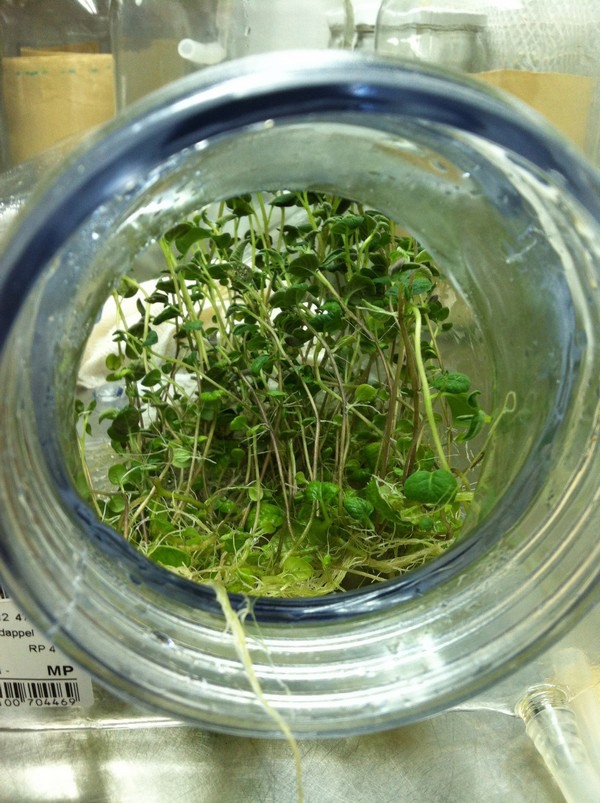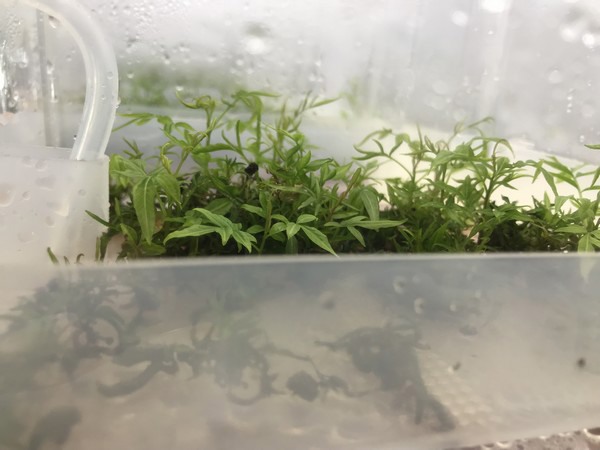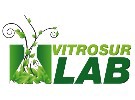The success or failure of a crop is subject to multiple factors, from unforeseen weather events to the appearance of unexpected pests. Thus, using healthy and quality plant material is essential to face these eventualities. Thanks to extensive and continuous research work, companies such as Vitrosur Lab can use in vitro techniques to produce and multiply healthy plants, bulbs, and microtubers for producers to grow their crops.
Vitrosur Lab's laboratory
"The in vitro propagation or micropropagation technique is based on micro-cutting that allows us to obtain disease-free plants identical to the starting material," Susana Vilarino stated. “This type of agamic or asexual reproduction is used to facilitate the multiplication of all those plant species that do not respond well to sexual reproduction, i.e. to the fertilization of the flower and the formation of seeds; to produce, for example, only female plants of certain species with commercial interest; to conserve the germplasm of varieties that have little genetic material available or for the clonal obtaining of healthy plants and seeds for agriculture.”

Microtubers in a temporary immersion system.
Potatoes and garlic, for example, are two crops that are prone to cumulative infection by viruses when they are propagated through vegetative seeds. “I compared the cultivation of potatoes from microtubers with the production from cuttings in the thesis I presented in Cuba to graduate in 1994,” Susana recalled.
"The first step to obtaining potato seeds is to produce in vitro plants and microtubers. In the laboratory, we produce healthy and totally pathogen-free microcuttings in laminar flow cabinets, which guarantee sterile work environments. Subsequently, we place them in a culture medium and, under controlled conditions, we induce the production of microtubers. These tubers constitute the pre-basic seed potatoes, which are planted to obtain the seed potatoes. This last operation is carried out under the regulations for the production of seed potatoes in northern Europe."
Microtubers in a temporary immersion system.
"Vitrosur has been producing microtubers for years for a Dutch seed potato company, but about 3 years ago they started producing their own material in a biofactory they built in Africa, where production costs are much lower," Susana Vilarino stated.
“We use the same technique to produce healthy microbulbs of garlic without virus problems from in vitro meristem culture. For example, in Almeria there is a biofactory dedicated to the production of garlic for seeds through micropropagation.”

Pistachio in a temporary immersion system.
Recovery of tomato varieties and producing virus-free sweet potato plants
Vitrosur Lab makes its advances in micropropagation research available to nurserymen and farmers from its facilities in the Sevillian municipality of Los Palacios and Villafranca, where it has a laboratory with an annual production capacity of 10 million in vitro plants.
"We have worked on the recovery of the germplasm of a tomato variety of which there were very few specimens left and that some farmers from the province gave us. At the request of Malaga farmers, we have also been making healthy and adapted sweet potato plants to face a virus problem they were experiencing because of the whitefly.”
Sweet potato plants in a greenhouse.
“In addition to producing different species and patterns at the request of nurserymen, we develop micropropagation protocols for third-party companies. Among other projects, we have worked with protocols for the in vitro production of new banana varieties in Brazil, blueberry varieties, and, more recently, we have been asked by Huelva to prepare a protocol for the in vitro propagation of pitahaya."
Vitrosur Lab, which belongs to Algosur and is part of the Spanish Society for In Vitro Cultivation of Plant Tissues, collaborates with international research institutions, including Wageningen University and INIA in Chile. "Currently, we are also investigating the production of biomass through in vitro culture to obtain secondary metabolites from Stevia for industry purposes."
For more information:
Susana Vilarino
Vitrosur Lab
C/ Desarrollo 2, Bajo
41720 Los Palacios y Villafranca, Sevilla (España)
Telf.: +34 955 816 663
www.vitrosurlab.com
